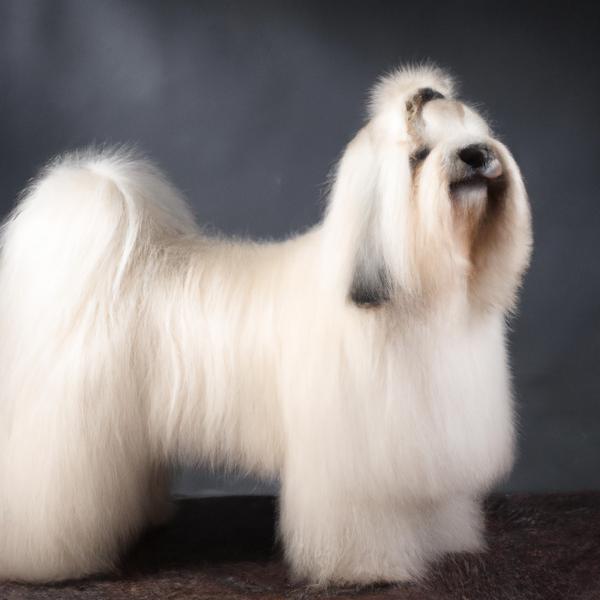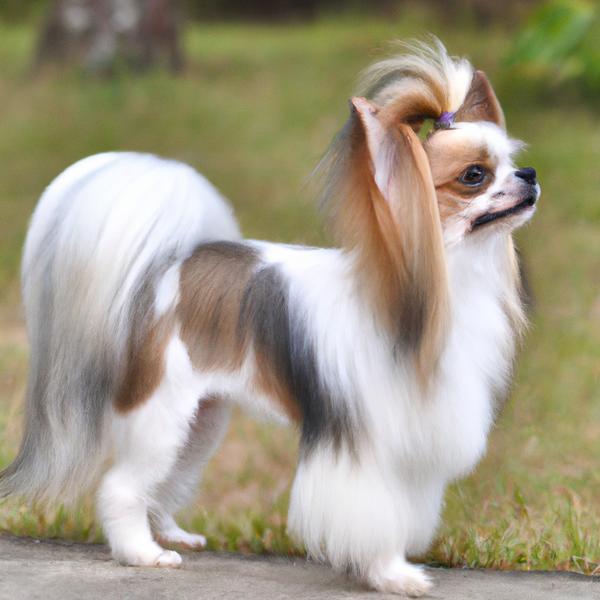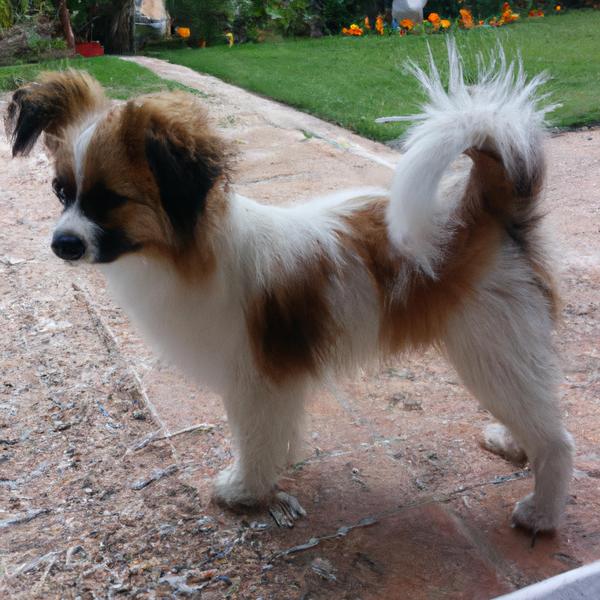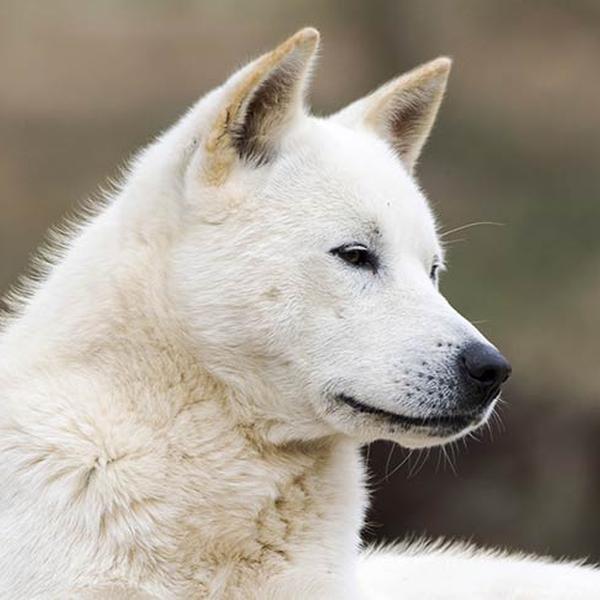Jindo vs. Westie Staff: Breed Differences and Similarities
Hypoallergenic
Are Jindos or Westie Staffs hypoallergenic, or neither?
Unfortunately, neither Jindo nor Westie Staff are hypoallergenic, which may not make them the best choice for dog lovers who suffer from pet allergies.
Watchdog Ability
Which dog breed makes a better watchdog, the Jindo or Westie Staff?
Jindos make excellent watchdogs - they're vocal and protective of their territory.
Westie Staffs aren't great guard dogs; they tend to just watch without taking action.
Origin
What is the origin of Jindo and Westie Staff dog breeds?
South Korea
United States
Ancestry
What are the origins of Jindo and Westie Staff breeds?
Spitz-type
West Highland White Terrier and American Staffordshire Terrier
Date of Birth
When were Jindo and Westie Staff breeds first developed?
Unknown
2000s
Eye Color Possibilites
What are the eye colors of Jindo and Westie Staff dogs?
Brown
Brown
Nose Color Possibilites
What are the natural nose colors of Jindo and Westie Staff?
Black
Black
Coat Color Possibilites
What are the natural colors of the coat for Jindo and Westie Staff breeds?
White
Brindle
Red
Gray
Black
Black
Gray
Brown
Cream
Fawn
Blue
White
Pied
Sable
Brindle
Coat Length
What is the typical coat length for Jindo and Westie Staff breeds?
Jindos have coats that can be either short or medium in length.
Westie Staffs have medium-length coats.
Coat Density
What is the density of the coat of Jindo and Westie Staff?
Coat Texture
What is the hair texture of Jindo and Westie Staff?
Straight
Litter Size
What is the usual litter size for Jindo and Westie Staff?
A Jindo can have a litter of 12-15 puppies on average. However, it's worth noting that the size of the litters can vary greatly. Factors that can influence litter size include the health of the mother, breeding history, and genetics.
A Westie Staff can have a litter of 5-10 puppies on average. However, it's worth noting that the size of the litters can vary greatly. Factors that can influence litter size include the health of the mother, breeding history, and genetics.
Major Concerns
What are the major health concerns for Jindo and Westie Staff breeds?
Hypothyroidism
Hip And Elbow Dysplasia
Hypothyroidism
Heart Diseases and Disorders
Minor Concerns
What minor health issues should be kept in mind when owning Jindo and Westie Staff?
Hip Dysplasia
Inguinal Hernias
Skin Diseases and Disorders
Eye Conditions (Cataracts, Lens Luxation)
Occasional Tests
What occasional tests are recommended for Jindo and Westie Staff breeds?
Hip X-Rays
Thyroid Tests
Skin Evaluation
Blood And Urine Analysis
Diagnostic Imaging
Eye and Ear Examination
DNA
Energy
How do the energy levels of Jindos and Westie Staffs compare?
Jindos' high energy levels make them unsuitable for a low-key dog, choose accordingly.
Westie Staffs are suitable for those with a balanced lifestyle as they have an average energy level.
Exercise Needed
Jindo vs Westie Staff exercise need comparison.
Jindos require significant physical activity and suit those with an active lifestyle.
Westie Staffs need high physical activity and are ideal for active individuals, but not suitable for sedentary lifestyles or small apartments.
Tendency to Bark
Do Jindos or Westie Staffs bark more/less frequently?
Jindos are typically quiet and only bark when needed, such as to alert their owner or when in distress.
The Westie Staff is a vocal breed that frequently barks and howls, and may not be suitable for those seeking a quiet companion.
Activity Level
Which breed has higher energy, Jindos or Westie Staffs?
Jindos are medium-energy dogs and typically enjoy socializing and playing casual or even sustained games of chase with other dogs. They may also have occasional periods of barking or racing around the house.
Westie Staffs are high-energy dogs. They need mental as well as physical exercise. These dogs require a lot of your involvement and without it they can, and will, become problematic dogs.
Walks per Week
How many miles should Jindo or Westie Staff walk each week?
There's really no limit to how far you walk your dog as long as they're comfortable. For Jindo, it's at least 9 miles / week. Just remember to build distance and stamina gradually over time.
There's really no limit to how far you walk your dog as long as they're comfortable. For Westie Staff, it's at least 10 miles / week. Just remember to build distance and stamina gradually over time.
Activity per Day
Do Jindos or Westie Staffs require more exercise?
In general most Jindos usually need at least 45 minutes of exercise daily. This can be spread across the day and include all sorts of high-energy activities, like walking, running and playing.
In general most Westie Staffs usually need at least 60 minutes of exercise daily. This can be spread across the day and include all sorts of high-energy activities, like walking, running and playing.
Grooming
Which breed is easier to maintain in terms of grooming, Jindos or Westie Staffs?
Jindo and Westie Staff are breeds of dogs that require an average amount of grooming effort.
Brushing Frequency
What is the recommended brushing frequency for Jindo and Westie Staff dogs?
Jindo should be brushed at least once a week. Of course you can give them more frequent brushes if you find that they are still shedding a lot
Ideally, Westie Staff should be brushed at least 2 or 3 times a week (preferably daily) improve shedding.
Brushing Tools
What brushing tools are used for Jindos and Westie Staffs?
Pin Brush
Comb
Deshedder
Nail Clipper
Pin Brush
Slicker Brush
Comb
Nail Clipper
Cups
How much food should be given to Jindo or Westie Staff in cups?
For an average 40-51 pound (18 - 23 kg) Jindo feed 2.3 cups daily. But, keep in mind, the amount you feed is going to be dependent on the quality of the food you are feeding.
For an average 40-50 pound (18 - 23 kg) Westie Staff feed 2.5 cups daily. But, keep in mind, the amount you feed is going to be dependent on the quality of the food you are feeding.
Daily Cost
Which breed has a higher daily cost, Jindo or Westie Staff?
The average cost of a Jindo is somewhere $1.70 - $2.00 per day.
The average cost of a Westie Staff is somewhere $2.20 - $3.40 per day.
Monthly Cost
Which breed has a higher monthly cost, Jindo or Westie Staff?
The average per month expenses of a Jindo is between $48 - $63. This makes an average of $576 - $756 per year. It will be on the higher side when the dog is still small because it will need more frequent visits to the vet, shots.
The average per month expenses of a Westie Staff is between $67 - $101. This makes an average of $804 - $1212 per year. It will be on the higher side when the dog is still small because it will need more frequent visits to the vet, shots.
Intelligence
Comparing Intelligence: Jindos vs Westie Staffs
Jindo is highly intelligent and very trainable.
Westie Staffs are average in obedience intelligence but have a high IQ and may cause trouble if left unsupervised.
Affection Dependance
Which is the more affectionate dog breed: Jindo vs Westie Staff?
Dog Friendly
Which breed is more sociable with other dogs: Jindo or Westie Staff?
Jindos are friendly and active companions, and can be good family pets, though their friendliness towards other dogs may vary.
Westie Staffs are average in their friendliness towards other dogs, and socialization can help.
Playfulness
Which breed is more playful between Jindo and Westie Staff?
Jindos are a playful breed that needs daily playtime to be happy.
Westie Staffs are very playful, so adopting an older one might be a better option for a more relaxed experience.
Trainability
How do the trainability levels of Jindos and Westie Staffs compare?
Jindos are usually easy to train but require consistency to fully obey commands.
Westie Staffs are popular for their ease of training and quick learning ability.
Compare Jindo with other breeds

Dobie-Basset
Jindo vs Dobie-Basset

Crested Malt
Jindo vs Crested Malt

Border Stack
Jindo vs Border Stack

Westie Staff
Jindo vs Westie Staff

Cava-Corgi
Jindo vs Cava-Corgi

Frenchnese
Jindo vs Frenchnese

Engachon
Jindo vs Engachon

Jack Russell Terrier
Jindo vs Jack Russell Terrier

Crested Chin
Jindo vs Crested Chin

Beagle Pit
Jindo vs Beagle Pit

Antebellum Bulldog
Jindo vs Antebellum Bulldog

Papimo
Jindo vs Papimo
